Hi there! Deciding whether or not to bring a new furry friend into your home is a big decision. Even more so when it comes to the health of your potential new companion. One question that may be on your mind is whether or not to buy a puppy with an umbilical hernia. In this article, we’ll explore everything you need to know about umbilical hernias in puppies, so you can make an informed decision that’s best for you and your future pet. I’ll also include how my outlook as a veterinarian has changed on this topic over the years. Within this article, we will be able to understand the causes, symptoms, and treatment options for umbilical hernias to ensure your puppy has the best possible start in life. Overall, small uncomplicated hernias are not a problem and can easily be addressed by any veterinarian.
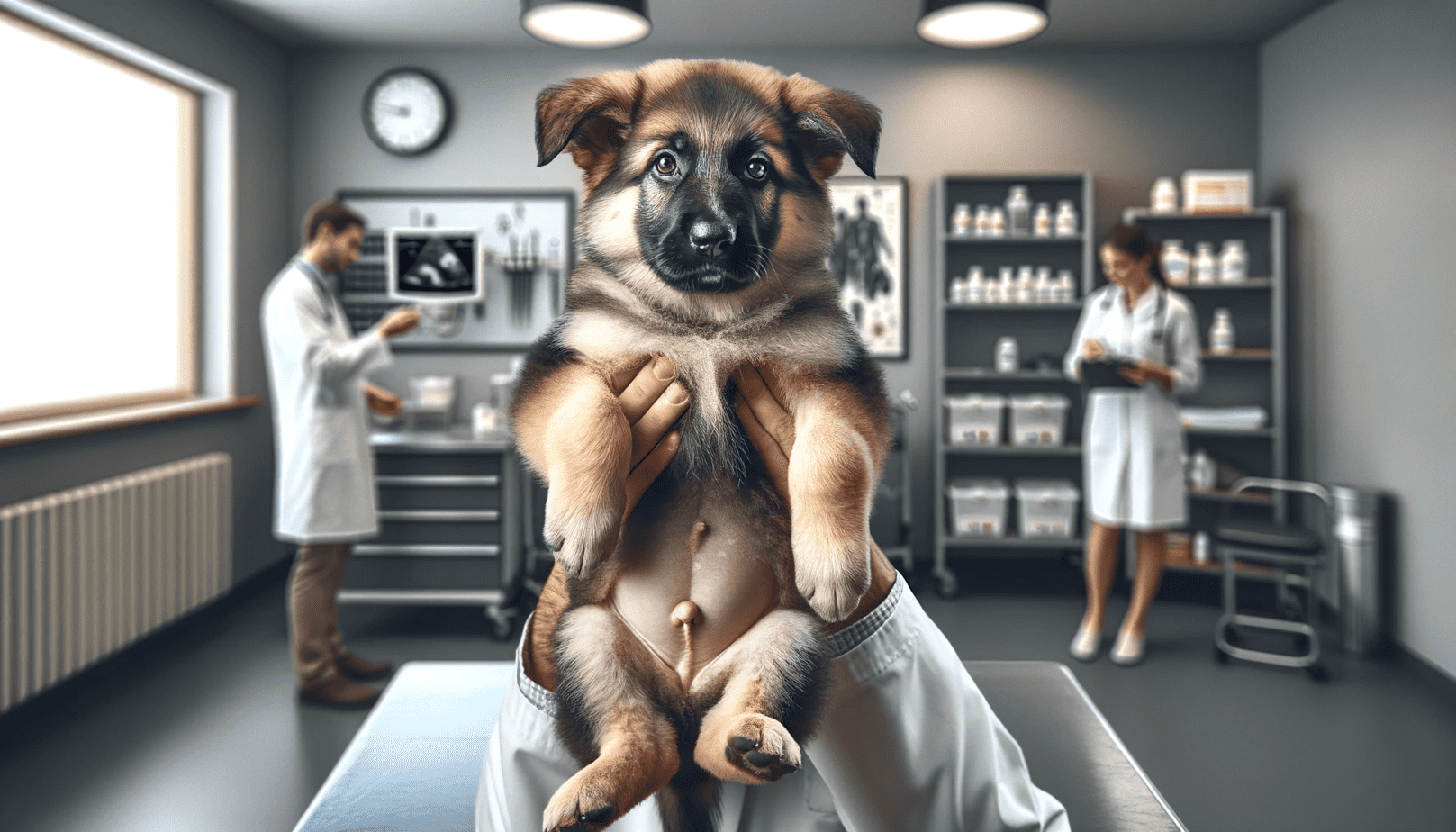
What is an Umbilical Hernia?
An umbilical hernia is a common condition in puppies, occurring when part of their intestines or other abdominal contents protrude through an opening in their abdominal wall near the belly button (umbilicus). This can happen due to a weakness in the muscle or incomplete closure of the umbilical ring after the umbilical cord is severed at birth. While umbilical hernias are more common in some breeds, they can affect any dog breed, and the severity of the condition can vary from case to case.
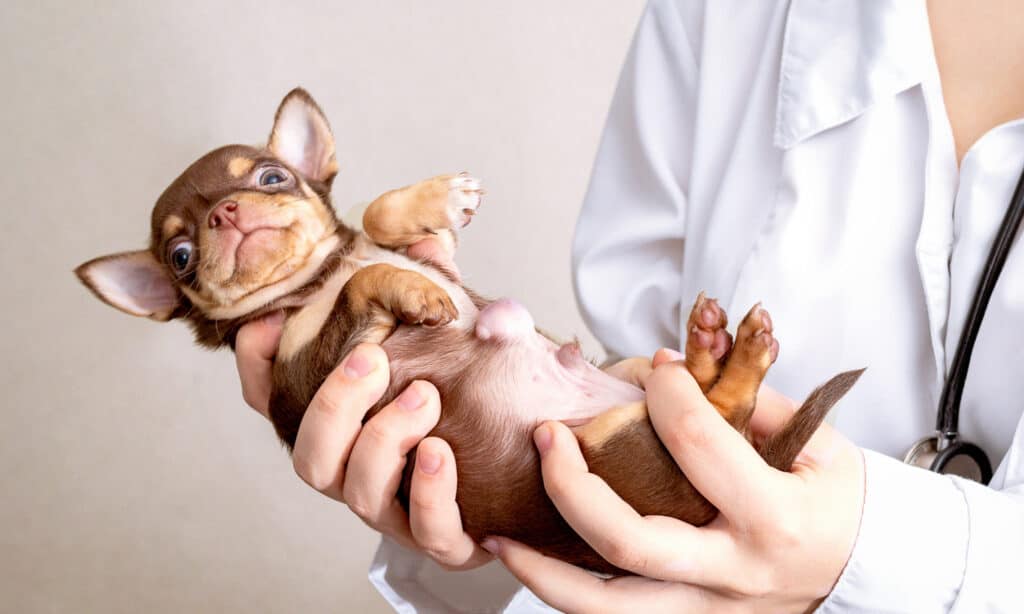
Types of Umbilical Hernias
There are three main types of umbilical hernias, each with its own set of considerations for treatment and potential complications:
Reducible hernias: These are the most common and least severe type of umbilical hernias. With reducible hernias, the abdominal contents can be easily pushed back into the abdominal cavity, and the hernia may even resolve on its own as the puppy grows.
- Non-reducible hernias: This type of hernia is more concerning, as the abdominal contents cannot be pushed back into the abdominal cavity. Non-reducible hernias may require surgical intervention to prevent complications.
- Complicated hernias: These hernias involve trapped or damaged abdominal contents within the hernia sac. These are considered a medical emergency. Immediate veterinary attention is required to address the problem and prevent life-threatening complications.
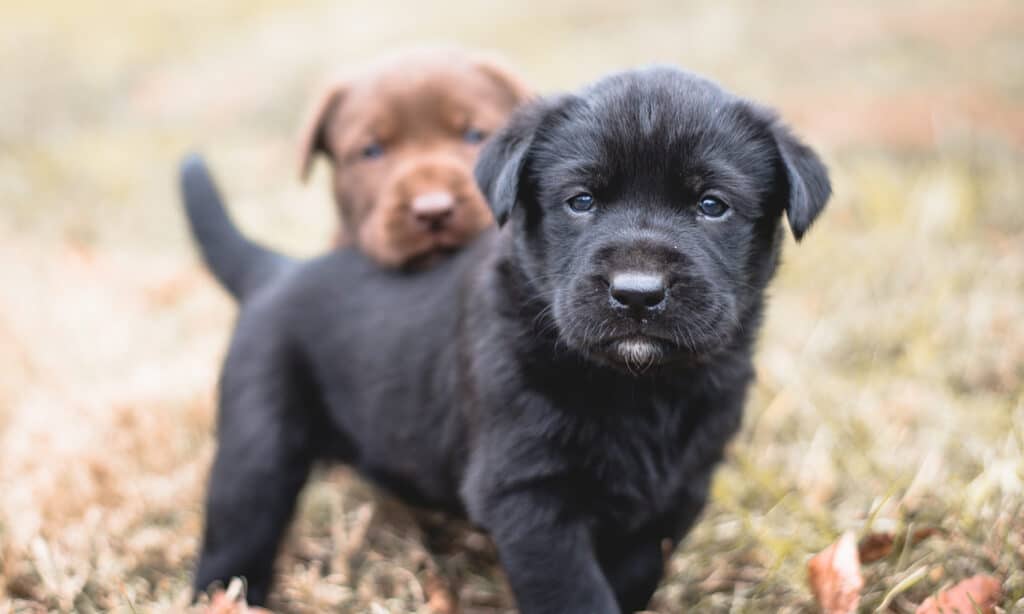
Dog Breeds Commonly Affected By Umbilical Hernias
Symptoms and Diagnosis Overview
If you’re considering buying a puppy with an umbilical hernia, it’s important to know the signs and how the condition is diagnosed. An umbilical hernia usually appears as a soft, round bulge near the puppy’s belly button. It may be more noticeable when the puppy is crying or straining. In some cases, a reducible hernia may not be visible but can be felt by a veterinarian during a physical examination.
When you suspect your puppy might have an umbilical hernia, take a quick trip on over to your veterinarian. Your vet will perform a thorough physical exam and may use imaging techniques, such as ultrasound, to assess the severity of the hernia and determine the most appropriate course of treatment.
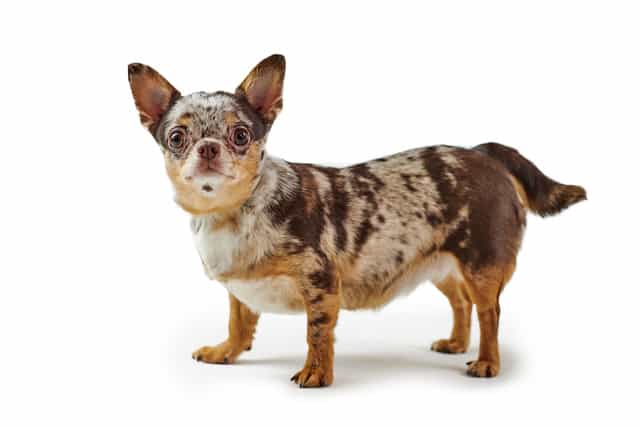
Treatment Options
As a holistic veterinarian, I understand how important it is for you to know all the treatment options available for your puppy’s umbilical hernia. The appropriate treatment depends on the type and severity of the hernia, as well as your puppy’s overall health.
- Non-surgical treatment: In many cases, especially with reducible hernias, no specific treatment may be necessary. Your vet may suggest a “wait-and-see” approach. Some hernias can resolve on their own as the puppy grows and the abdominal muscles strengthen. However, it’s essential to monitor your puppy closely for any changes or signs of complications.
- Surgical treatment: For non-reducible or complicated hernias, surgery (herniorrhaphy) may be recommended to repair the defect in the abdominal wall and prevent further complications. This procedure is typically performed at the same time as spaying or neutering to minimize anesthesia risks and recovery time.
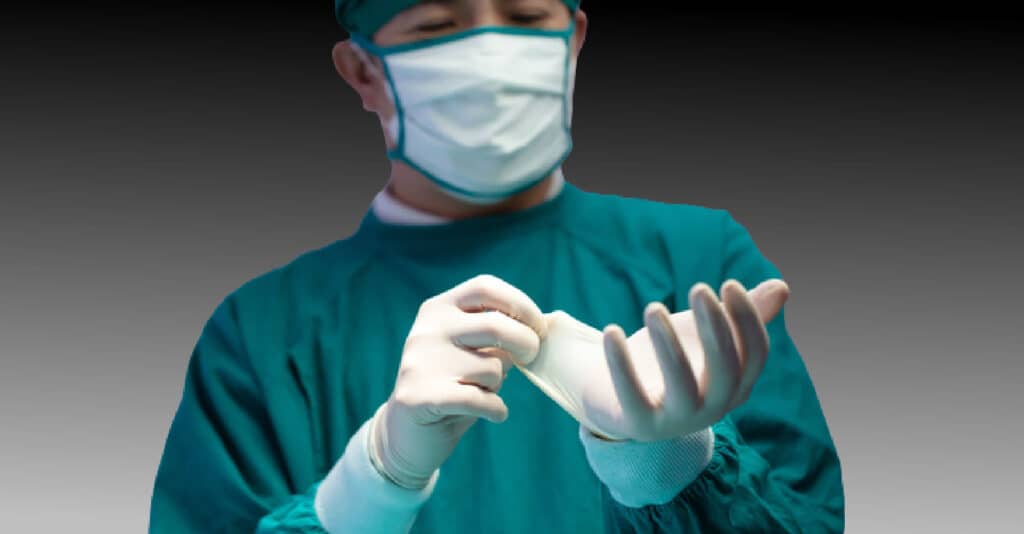
Potential Risks and Complications
It’s important to be aware of the potential risks and complications associated with umbilical hernias, whether you choose to pursue treatment or not.
Risks associated with untreated umbilical hernias:
While some hernias may resolve on their own, there is always a risk of complications, such as intestinal strangulation, which can be life-threatening.
Possible complications during surgery:
As with any surgery, there are inherent risks, such as anesthesia complications, infection, or bleeding. However, hernia repair surgeries are generally considered low-risk procedures, and complications are rare when performed by an experienced veterinarian. Even early in practice, I was able to repair most umbilical hernias in under 5 minutes.
Long-term health implications:
Most puppies with properly treated umbilical hernias go on to live normal healthy, happy lives.
Costs of Umbilical Hernia Treatment Surgery
Umbilical hernia treatment cost varies by treatment type, location, and veterinarian choice. In general, surgical repair can range from $50 to $1,000.
The cost of surgery may be higher if additional procedures, such as spaying or neutering, are performed at the same time. Additionally, any necessary follow-up care, medication, or complications can also impact the overall cost.
Does Pet Insurance Cover Umbilical Hernia Repair?
Most pet insurance plans help cover some of the costs associated with umbilical hernia treatment. It’s a good idea to research insurance options and other financial assistance programs to help you prepare for any unexpected expenses. Pet insurance may not cover umbilical hernia expenses if the condition was diagnosed before the policy’s effective date.

Prognosis and Recovery From Umbilical Hernias
Understanding the prognosis and recovery process for puppies with umbilical hernias can help ease your mind as you navigate this journey together:
- Expected outcomes: With proper treatment, most puppies with umbilical hernias can expect a full recovery and a healthy, happy life. Early intervention and diligent monitoring are key to ensuring the best possible outcome for your furry friend.
- Post-surgery care and recovery process: After surgery, your puppy may need to wear an e-collar to prevent licking or biting at the incision site. Your vet will provide you with instructions on how to care for the incision, administer any prescribed medications, and monitor your puppy for any signs of complications.
What to Do if a Puppy Spontaneously Develops an Umbilical Hernia?
Sometimes puppies can develop a newly identified umbilical hernia during puppyhood. If your puppy did not have an umbilical hernia when you got them, but you are seeing changes- you should call a vet right away. A hernia that develops later can result in the same abdominal issues such as intestinal damage.
Preventing Umbilical Hernias
While it’s not always possible to prevent umbilical hernias, there are some steps that can be taken to minimize the risk:
Breeding practices to minimize risk
Responsible breeding practices, including screening for genetic predispositions and avoiding breeding dogs with a history of umbilical hernias, can help reduce the incidence of this condition in puppies.
Proper care during pregnancy and delivery
Ensuring that a pregnant dog receives appropriate prenatal care and a safe, clean environment for giving birth can minimize the risk of complications, including umbilical hernias.
Early identification and intervention
Regular veterinary check-ups for newborn puppies can help identify any abnormalities, including umbilical hernias, at an early stage. Early intervention can lead to better outcomes and minimize the risk of complications.

Making the “Big” Decision: Should You Buy a Puppy with an Umbilical Hernia?
When it comes to deciding whether to buy a puppy with an umbilical hernia, there’s no one-size-fits-all answer. It’s important to weigh the risks and benefits and consider your personal circumstances and resources. But in general, when I consult with clients, I tell them that if the puppy and parents seem healthy otherwise- it’s not a big concern.
If you are still concerned about the health of the puppy consult with a trusted veterinarian who can provide you with the information and support you need to make an informed decision. They can help you understand the implications of your decision and guide you through the process.
Deciding whether to buy a puppy with an umbilical hernia is a personal choice that requires careful consideration of various factors. But by educating yourself, you can make the best decision for both you and your future furry friend. Ultimately, with the right care and attention, a puppy with a treated umbilical hernia can lead a healthy, happy life as a beloved member of your family.
FAQs
Umbilical hernias in puppies are caused by a weakness in the abdominal wall or incomplete closure of the umbilical ring after birth. Certain breeds are more prone to them. However, any dog breed can develop an umbilical hernia.
To identify an umbilical hernia, look for a soft, round bulge near the puppy’s belly button. It may be more noticeable when the puppy is crying or straining.
Treatment options for umbilical hernias depend on the severity and type of hernia. From non-surgical “wait-and-see” approaches for reducible hernias to surgical intervention for non-reducible or complicated hernias.
Untreated umbilical hernias can lead to complications such as intestinal strangulation. Risks associated with hernia repair surgery include anesthesia complications, infection, and bleeding. However, hernia repair surgeries are generally considered low-risk when performed by an experienced veterinarian.
The cost of treating an umbilical hernia can range from $50 to $1,000, depending on factors like treatment type, location, and veterinarian. Pet insurance and financial assistance programs may help cover some of the costs associated with treatment.
Recovery after umbilical hernia surgery involves monitoring the incision site, administering medications as prescribed, and watching for signs of complications. Ensuring your puppy’s long-term health includes regular veterinary check-ups, a balanced diet, exercise, and mental stimulation.
Resources: Vogelsang, J. (2017, January 5). Hernias in Puppies: What You Need to Know. Petmd.com; PetMD. https://www.petmd.com/dog/general-health/hernias-puppies-what-you-need-know
~Dr. Candy

